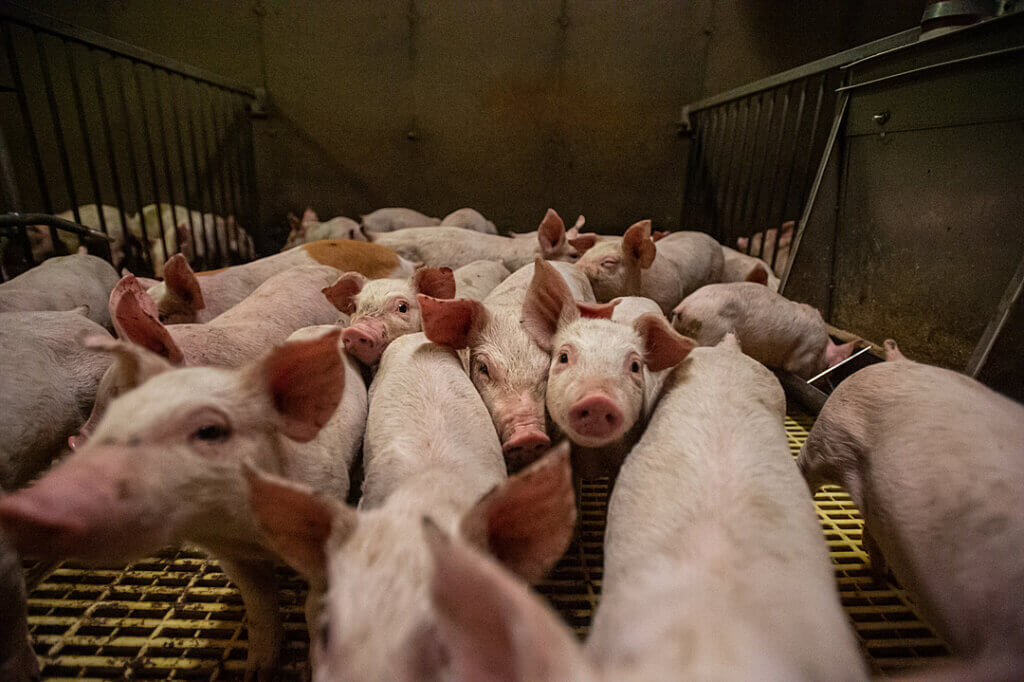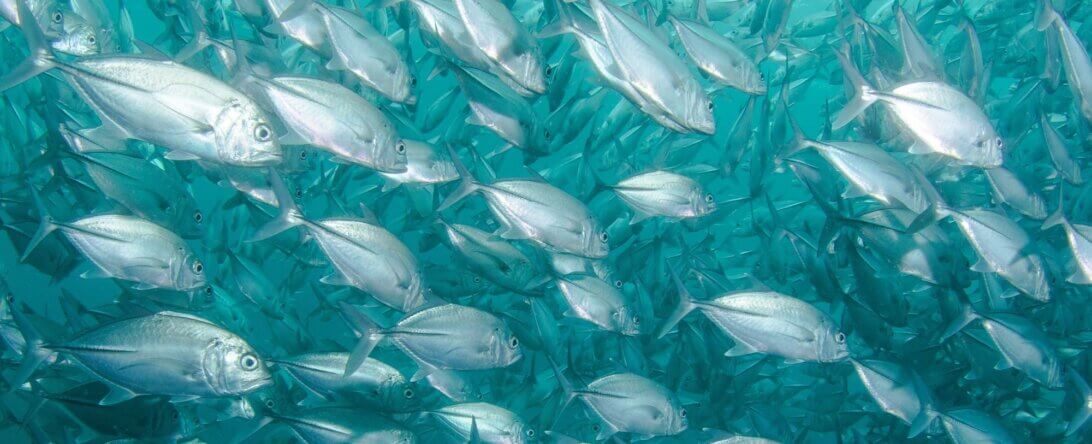Are Humans Supposed to Eat Animals?
In general, people who eat animals stick to one basic argument: It’s “natural” for humans to eat meat. You’ve probably heard this before, whether it was from your parents, grandparents, siblings, or even friends. It’s a convenient excuse that allows them to deny responsibility for the horrific treatment of animals raised and slaughtered for food—but how true is this statement? Are humans really supposed to eat animals?
Let’s consider that most humans are revolted by the sight of blood, intestines, and raw flesh and can’t tolerate hearing the screams of animals being ripped apart and killed. Any human who killed an animal with their bare hands and then ate the flesh raw would be considered a danger to society. The bloody reality of eating animals should be repulsive to us.
Humans have short, soft fingernails and tiny canine teeth. True carnivores have sharp claws and large canine teeth that are capable of tearing flesh. Dr. Richard Leakey, the late renowned anthropologist, summarized, “You can’t tear flesh by hand, you can’t tear hide by hand. Our anterior teeth are not suited for tearing flesh or hide. We don’t have large canine teeth, and we wouldn’t have been able to deal with food sources that require those large canines.”
Carnivores usually gulp down chunks of food whole, relying on their extremely acidic stomach juices to break down flesh and kill the dangerous bacteria in meat that would otherwise sicken or kill them. Our stomach acids are much weaker in comparison, because strong acids aren’t needed to digest pre-chewed fruits and vegetables.
Even our intestinal tracts and colons differ greatly from those of carnivores. Carnivores have short intestinal tracts and colons that allow meat to pass through their digestive systems relatively quickly, before it can rot and cause illness. Humans’ intestinal tracts are much longer than those of carnivores of comparable size. Longer intestines allow the body more time to break down fiber and absorb the nutrients from plant-based foods, but they make it dangerous for humans to eat animals.
The bacteria in animal flesh have extra time to multiply during the long trip through our digestive system. The flesh actually begins to rot while it makes its way through human intestines, increasing the risk of developing colon cancer. Since we don’t have strong stomach acids like carnivores to kill all the bacteria in meat, eating animal flesh can also give us food poisoning.
According to the U.S. Department of Agriculture, meat is a significant cause of foodborne illnesses in the U.S. because it’s often contaminated with dangerous bacteria such as E. coli, listeria, and campylobacter. Every year in the U.S. alone, food poisoning sickens more than 48 million people and kills more than 3,000.
Dr. William C. Roberts, editor of the authoritative American Journal of Cardiology, sums it up this way: “[A]lthough we think we are one and we act as if we are one, human beings are not natural carnivores. When we kill animals to eat them, they end up killing us because their flesh, which contains cholesterol and saturated fat, was never intended for human beings, who are natural herbivores.” If we were meant to eat animals, why is this practice so damaging to our bodies?
Carnivorous animals in nature virtually never develop heart disease, cancer, diabetes, or strokes—ailments that, in humans, are caused largely by the consumption of the saturated fat and cholesterol found in dead animals.
Human bodies weren’t designed to process animal flesh, so all the excess fat and cholesterol in a meat-based diet can make us sick. Heart disease, for example, is the number one killer in the U.S., according to the American Heart Association, and medical experts agree that this ailment is largely the result of consuming animal-derived foods. People who eat animals have a 32% higher risk of developing heart disease than vegans do.
According to the Centers for Disease Control and Prevention, most Americans get more than enough protein without paying special attention to their diets. A high-protein diet can sometimes restrict carbohydrate intake so much that nutritional deficiencies or insufficient fiber can result. It may also increase the risk of heart disease and may worsen kidney function in people with kidney disease because the body can have trouble eliminating all the waste products of protein metabolism.
The good news is that even the Academy of Nutrition and Dietetics says that eating vegan is good for every stage of life! 🌱🥳
During most of our evolutionary history, humans around the world were largely vegan. Plant foods make up the bulk of many cultures’ diets. For example, my ancestors (native to Brazil) relied mostly on fruits and bean- or corn-based meals. With colonization, the domestication of animals for the sake of breeding them to be eaten was brought to our lands. Such manipulation of the natural world was foreign to us but has, unfortunately, continued (for now 😉).
Now that animal flesh has become relatively cheap and easily available (thanks to the cruel, cost-cutting practices of factory farming), deadly ailments such as heart disease, strokes, and cancer have spread to people across the socioeconomic spectrum. As the Western lifestyle continues to be imposed in Africa and Asia, people there, too, have begun to suffer and die from diseases associated with animal-based diets.
We weren’t meant to eat animals, and eating them could even be killing people! Now you know how to respond to anyone who tries to use “biological need” as an excuse to consume flesh. Going vegan is the most compassionate thing you can do for animals and your own body. 😊
Text peta2 to 30933 for ways to help animals, tips on compassionate living, and more!

Terms for automated texts/calls from peta2: http://peta.vg/txt. Text STOP to end, HELP for more info. Msg/data rates may apply. U.S. only.





